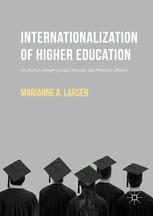

Most ebook files are in PDF format, so you can easily read them using various software such as Foxit Reader or directly on the Google Chrome browser.
Some ebook files are released by publishers in other formats such as .awz, .mobi, .epub, .fb2, etc. You may need to install specific software to read these formats on mobile/PC, such as Calibre.
Please read the tutorial at this link: https://ebookbell.com/faq
We offer FREE conversion to the popular formats you request; however, this may take some time. Therefore, right after payment, please email us, and we will try to provide the service as quickly as possible.
For some exceptional file formats or broken links (if any), please refrain from opening any disputes. Instead, email us first, and we will try to assist within a maximum of 6 hours.
EbookBell Team

4.7
106 reviewsThis book provides a cutting-edge analysis of the ways in which higher education institutions have become more international over the past two decades. Drawing upon a range of post-foundational spatial, network, and mobilities theories, the book shifts our thinking away from linear, binary, Western accounts of internationalization to understand the complex, multi-centered and contradictory ways in which internationalization processes have played out across a wide variety of higher education landscapes worldwide. The author explores transnational student, scholar, knowledge, program and provider mobilities; the production of mobile bodies, knowledges, and identities; the significance of place in internationalization; and the crucial role that global university rankings play in reshaping the spatial landscape of higher education.